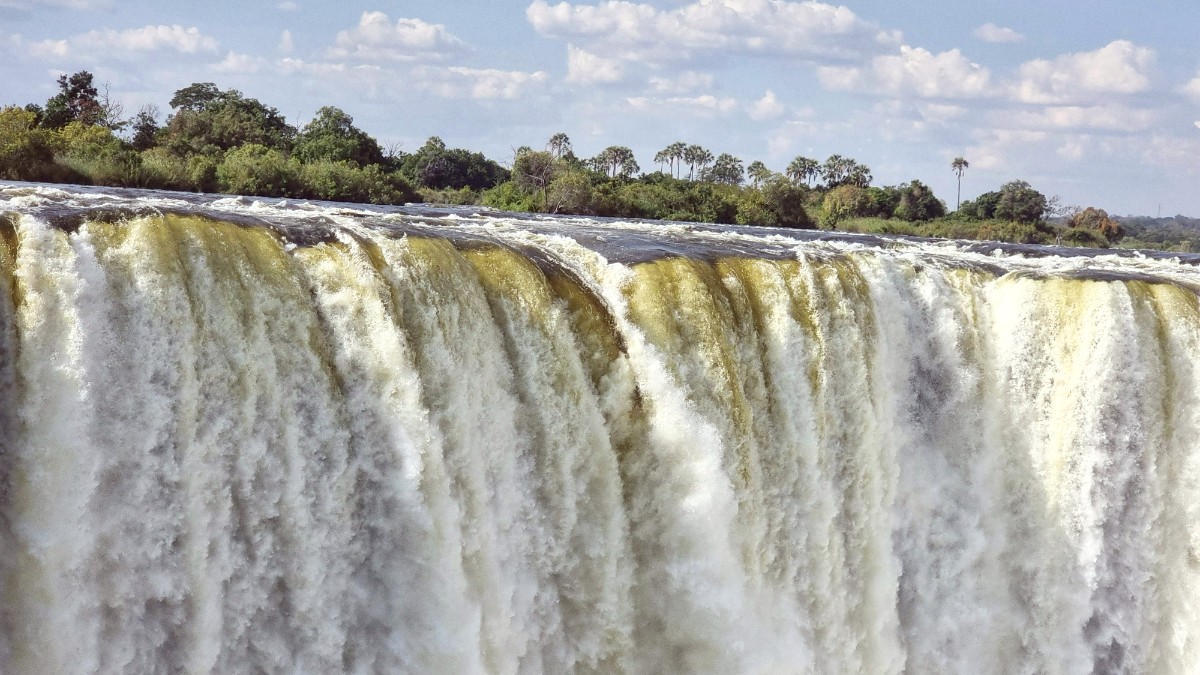
The region around Victoria Falls delivers adventure, wildlife encounters, and cultural richness. Diverse activities await, from adrenaline-pumping bungee jumps to peaceful sunset cruises on the Zambezi River. Explore the lush rainforest sustained by the falls’ mist, or embark on a safari to spot Africa’s famous wildlife. Your journey here promises a highlight of your travels.
David Livingstone, the Scottish missionary and explorer, first witnessed Victoria Falls in 1855, naming them after Queen Victoria. Local communities had known and revered the falls as Mosi-oa-Tunya for centuries.
The Victoria Falls Bridge, constructed in 1905, marked a turning point, linking what were then Northern and Southern Rhodesia. This rail link facilitated trade and tourism, slowly transforming the area into a destination.
Explore the falls from both the Zimbabwean and Zambian sides. The Zimbabwean side presents panoramic views, while the Zambian side permits closer access to sections like the Knife-Edge Bridge, where mist drenching occurs.
Beyond the falls, the Zambezi River invites thrilling activities. White-water rafting, bungee jumping from the Victoria Falls Bridge, gorge swings, and zip-lining across the canyon are popular. Helicopter or microlight flights offer aerial panoramas.
Game drives in nearby national parks reveal elephants, buffalo, and various antelope.
Sunset cruises on the upper Zambezi River display hippos, crocodiles, and diverse birdlife.
Visits to local villages provide insight into traditional life and dinner experiences.
High water levels bring immense power and mist; low water levels offer clearer views and access to Devil's Pool.
Victoria Falls (Zimbabwe) and Livingstone (Zambia) towns present distinct atmospheres with diverse amenities.
Plan your trip according to your interests and the season. This approach ensures you experience the most from this incredible destination.
Offers more panoramic views of the main curtain of water. Paths are generally well-maintained and provide various viewpoints.
Allows closer access to specific sections like the Knife-Edge Bridge, where mist drenching is common. Features the seasonal Devil's Pool.
The region promises a trip filled with wonder and excitement, leaving lasting memories.
Victoria Falls features a subtropical climate with distinct wet and dry seasons. Each season presents an unique perspective of the falls and diverse activity opportunities.
The wet season typically runs from late November to April, with high temperatures and frequent thunderstorms. The dry season spans from May to October, with milder temperatures and low humidity. Waterproof gear becomes necessary during high-water season (February to June) due to prominent mist.
Dry season with lower water levels, clear views, and cooler temperatures. Crowds and prices can be higher.
Transitional periods with varying water levels, fewer crowds, and potentially better prices.
Hot, wet season with high water volume and mist. Lowest prices and smallest crowds.
Choosing the right time to visit influences your experience, ensuring you gain the most from this incredible destination.
Your travel experience is simpler with well-organized and secure documents. Prepare copies, both printed and digital.
Victoria Falls welcomes diverse budgets, from backpacker hostels to luxurious lodges. Currency management and understanding local payment customs aid a smooth trip.
Zimbabwe mainly uses USD. Zambia uses Zambian Kwacha (ZMW), with USD widely accepted for tourist activities. Exchange money at official bureaux de change.
ATMs exist but can be unreliable. Credit card acceptance is growing in hotels and larger shops, but cash helps for park fees, visas, smaller establishments, and tips.
Always agree on taxi fares before beginning your journey to prevent disputes.